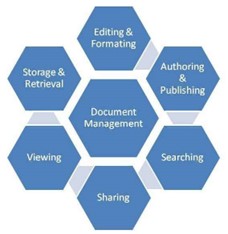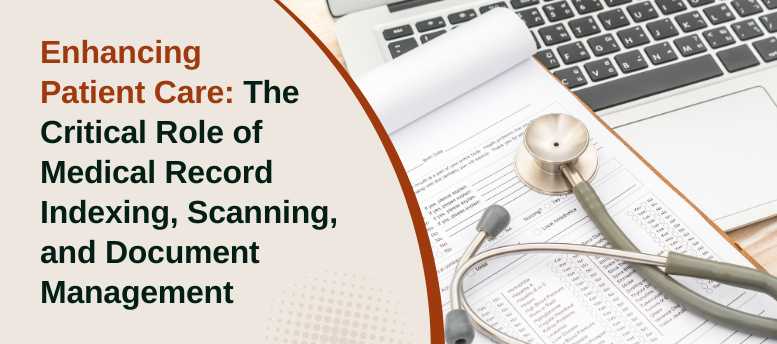In the fast-paced world of healthcare, ensuring efficient access to accurate medical records is crucial for providing high-quality patient care. Medical record indexing, scanning, and document management processes play a pivotal role in this regard, serving as the backbone of modern healthcare systems. From facilitating timely diagnosis to streamlining treatment plans, the importance of these processes cannot be overstated.
The Significance of Medical Record Indexing

Medical record indexing involves organizing patient information systematically, making it easily retrievable when needed. It categorizes records based on various parameters such as patient demographics, document types, medical history, and diagnostic tests. These are then names, split, and placed one by one in the correct patient folders allowing for accurate and efficient information. This structured approach enables healthcare providers to locate relevant information, saving valuable time during all situations.
Indexing also enhances data accuracy by reducing the likelihood of errors and inconsistencies. With indexed records, healthcare professionals can quickly cross-reference information, ensuring comprehensive patient assessments and informed decision-making. Additionally, proper indexing facilitates seamless communication among different healthcare departments, fostering collaboration and continuity of care.
Streamlining with Scanning Technology
 The advent of scanning technology has changed medical record management by digitizing paper-based documents. Scanning allows for the conversion of physical records into electronic formats, enabling easy storage, retrieval, and sharing. This transition not only saves physical storage space but also minimizes the risk of document loss or damage.
The advent of scanning technology has changed medical record management by digitizing paper-based documents. Scanning allows for the conversion of physical records into electronic formats, enabling easy storage, retrieval, and sharing. This transition not only saves physical storage space but also minimizes the risk of document loss or damage.
Furthermore, scanned documents are accessible remotely, breaking down geographical barriers and promoting telemedicine initiatives. Patients can benefit from virtual consultations and remote monitoring, while healthcare providers gain access to a comprehensive repository of patient data regardless of their location. This ability in information access is particularly valuable in emergency situations where every second counts.
Efficient Document Management

Effective document management goes beyond mere storage; it involves establishing robust protocols for document handling, version control, and security. Implementing an efficient document management system ensures data integrity, confidentiality, and compliance with regulatory standards such as HIPAA (Health Insurance Portability and Accountability Act).
Moreover, advanced document management solutions offer features like optical character recognition (OCR) and keyword search functionalities, further enhancing accessibility and usability. This allows healthcare professionals to retrieve specific information from vast repositories, facilitating accurate diagnosis and personalized treatment plans.
Conclusion: Advancing Healthcare through Comprehensive Record Management
In conclusion, medical record indexing, document scanning, and document management processes are indispensable components of modern healthcare infrastructure. By streamlining access to patient information, these processes empower healthcare professionals to deliver timely, evidence-based care, ultimately improving patient outcomes and satisfaction.
Embracing digital solutions for record management not only enhances operational efficiency but also promotes patient-centric care delivery models. As technology continues to evolve, healthcare organizations must prioritize investments in robust record management systems to meet the ever-growing demands of a dynamic healthcare landscape.
In essence, the journey towards superior patient care begins with efficient record management – where every indexed entry, scanned document, and securely managed file contributes to a healthier, more connected future.
In the quest for excellence in healthcare, let us not overlook the transformative power of effective record management practices. After all, the wellbeing of patients depends on it.


